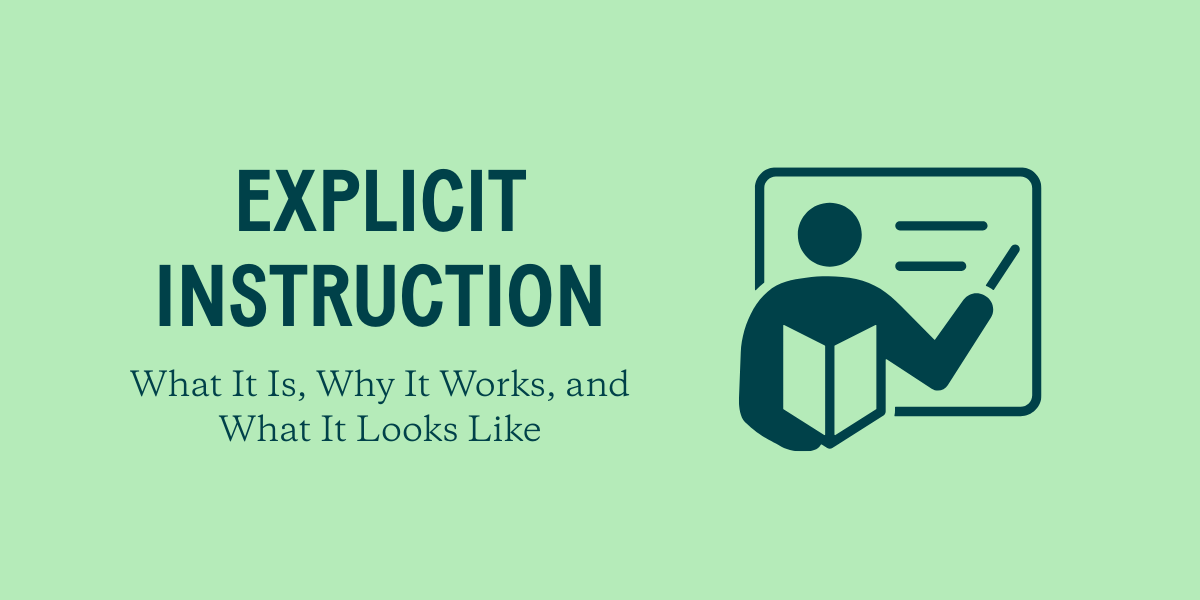Unlocking the Path to Literacy: Cognitive Load Theory and Every Child's Right to Read
In the journey of education, the ability to read is often heralded as the gateway to knowledge, empowerment, and success. Yet, for many children,...
K-12Discover how Readable English is transforming reading instruction |
PROGRESS MONITORINGEasily assess and monitor growth with data-driven insights and reporting tools |
PROFESSIONAL SERVICESDiscover the services that support your success, from virtual training to expert coaching |
INDIVIDUALSStrengthen your reading skills with an interactive app tailored to your learning needs |
PARENTSEmpower your child's reading journey with an interactive app and expert strategies for home support |
|

|
Rethinking Reading: How One District Transformed Instruction (SmartBrief)Discover how a bold shift in reading instruction helped struggling learners thrive - and the critical role Readable English played in their success.
|
RESEARCH & RESULTSExplore peer-reviewed studies and real-world case studies on Readable English in action |
BLOGExplore articles on feature highlights, research deep-dives, and the latest literacy insights |
EBOOKDownload the ebook Why Learning to Read English is So Hard and how to Make it Easier |
CUSTOMER STORIESDiscover how educators and administrators are transforming literacy with Readable English |
RESOURCE AND PRODUCT ENABLEMENT LIBRARYFind essential educational references and instructional materials to enhance teaching |
FAQSFind essential educational references and instructional materials to enhance teaching |
NEWS & EVENTSStay up to date with media coverage, webinars, and upcoming events featuring Readable English |
|
|
Rethinking Reading: How One District Transformed Instruction (SmartBrief)Discover how a bold shift in reading instruction helped struggling learners thrive - and the critical role Readable English played in their success. |
2 min read
 Anna Boyle
:
November 4, 2025
Anna Boyle
:
November 4, 2025
When it comes to helping teachers grow from novices to experts, decades of research in education and cognitive science point to one powerful idea: Novices need more structure and scaffolding, while experts benefit from more independence.
This principle sits at the heart of Cognitive Load Theory (CLT), one of the most influential frameworks for understanding how people learn. Developed by Professor John Sweller, CLT helps explain why different teaching approaches work best at different stages of expertise.
Two well-established principles from CLT - the worked example effect and the expertise-reversal effect - show how structure should evolve as learners develop.
The worked example effect demonstrates that beginners learn most effectively when given clear, complete models of how to perform a task. Instead of being asked to “figure it out,” novices progress faster when they can study and replicate an example of success.
The expertise-reversal effect reveals that as learners gain experience, too much guidance can actually slow them down. Once someone understands the process deeply, they learn more efficiently through practice and problem-solving rather than by observing examples.
In short, what helps a beginner can hinder an expert. Effective teaching means matching the level of instructional support to the learner’s stage of development.
Now imagine a novice teacher preparing a literacy lesson for Monday morning. They know what to teach - perhaps how to decode multisyllabic words or introduce a new spelling pattern - but not necessarily the best sequence of words, visuals, and examples to guide their students.
For a new teacher, creating these materials from scratch can be daunting. Every decision, what to say, what to show, and how to check for understanding, adds to their cognitive load. And when a teacher’s working memory is overloaded, their ability to deliver clear, confident instruction suffers.
What they need, according to Cognitive Load Theory, is a worked example of effective instruction; a model lesson that shows exactly what to say and do to achieve success.
At Readable English, we've been we’ve been intentional in incorporating the principles of Cognitive Load Theory into every aspect of our program. Our structured literacy program is designed not only for students but for the teachers who guide them. Every Readable English lesson includes:
Pre-made lesson materials, including visuals, activities, and student resources
Scripted prompts and teaching guides, providing clear models of effective instruction
Built-in scaffolds that align with how the human brain processes new information
By embedding these supports directly into the program, Readable English reduces teacher workload and minimizes unnecessary cognitive load, allowing educators to focus on delivery, engagement, and student support rather than (more) preparation.
Over time, as teachers become more confident with the program, they naturally move toward greater autonomy, experiencing the expertise-reversal effect firsthand as they adapt lessons to their own style and students’ needs.
Professor John Sweller, the founder of Cognitive Load Theory, has formally and publicly endorsed Readable English for its strong alignment with CLT principles.
"Those familiar with Cognitive Load Theory with its emphasis on reducing working memory load during learning will immediately see the benefits of the system... Based on theory and data, I can recommend Readable English in the strongest possible terms. It has the potential to transform the teaching of English." - Professor John Sweller
You can read his full statement here:
👉 John Sweller endorses Readable English
Becoming an expert teacher takes time, experience, and the right tools. With Readable English, teachers begin that journey with confidence, supported by ready-to-use lesson plans, evidence-based methods, and a program grounded in Cognitive Load Theory.
Readable English doesn’t just help students become skilled readers. It also helps teachers grow from novice to expert, one structured, well-designed lesson at a time.

In the journey of education, the ability to read is often heralded as the gateway to knowledge, empowerment, and success. Yet, for many children,...

At first glance, words like five, move, and gone look simple. But for beginning readers, decoding these words can be far from easy. This infographic...

In classrooms, clarity matters. When students are learning something new - whether it’s decoding unfamiliar words, solving multi-step problems, or...